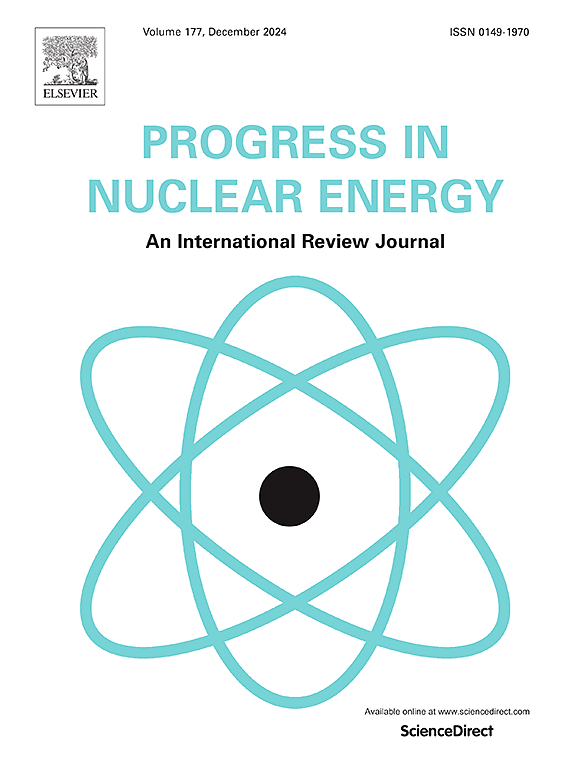Dynamic analysis code development for space nuclear power systems
IF 3.3
3区 工程技术
Q1 NUCLEAR SCIENCE & TECHNOLOGY
引用次数: 0
Abstract
Space nuclear power systems (SNPs) are considered an optimal power solution for future space missions. Among various system designs, a gas-cooled reactor coupled with closed Brayton cycle energy conversion systems has emerged as one of the most promising options for generating electrical power in the range of hundreds to thousands of kilowatts. Due to strong parameter coupling, small design margins, and limited control strategies, a reliable and accurate dynamic analysis tool is essential for the optimization and operation safety of SNPs. In this paper, RELAP5 is modified to support the dynamic analysis of these systems, following a comparison between the original code capabilities and the simulation requirements for SNPs. A compressor model and a turbine model are developed, and the heat transfer model is adapted for compact counterflow heat exchangers. Additionally, the convective and radiation heat transfer models are modified for open lattice reactors with compact rod bundles. The accuracy of the modified RELAP5 is verified through comparisons with results from the system design code Megrez, the CFD simulations and the JIMO reports. The results confirm that the dynamic analysis code developed in this paper is suitable for transient analysis of SNPs.
求助全文
约1分钟内获得全文
求助全文
来源期刊

Progress in Nuclear Energy
工程技术-核科学技术
CiteScore
5.30
自引率
14.80%
发文量
331
审稿时长
3.5 months
期刊介绍:
Progress in Nuclear Energy is an international review journal covering all aspects of nuclear science and engineering. In keeping with the maturity of nuclear power, articles on safety, siting and environmental problems are encouraged, as are those associated with economics and fuel management. However, basic physics and engineering will remain an important aspect of the editorial policy. Articles published are either of a review nature or present new material in more depth. They are aimed at researchers and technically-oriented managers working in the nuclear energy field.
Please note the following:
1) PNE seeks high quality research papers which are medium to long in length. Short research papers should be submitted to the journal Annals in Nuclear Energy.
2) PNE reserves the right to reject papers which are based solely on routine application of computer codes used to produce reactor designs or explain existing reactor phenomena. Such papers, although worthy, are best left as laboratory reports whereas Progress in Nuclear Energy seeks papers of originality, which are archival in nature, in the fields of mathematical and experimental nuclear technology, including fission, fusion (blanket physics, radiation damage), safety, materials aspects, economics, etc.
3) Review papers, which may occasionally be invited, are particularly sought by the journal in these fields.
 求助内容:
求助内容: 应助结果提醒方式:
应助结果提醒方式:


